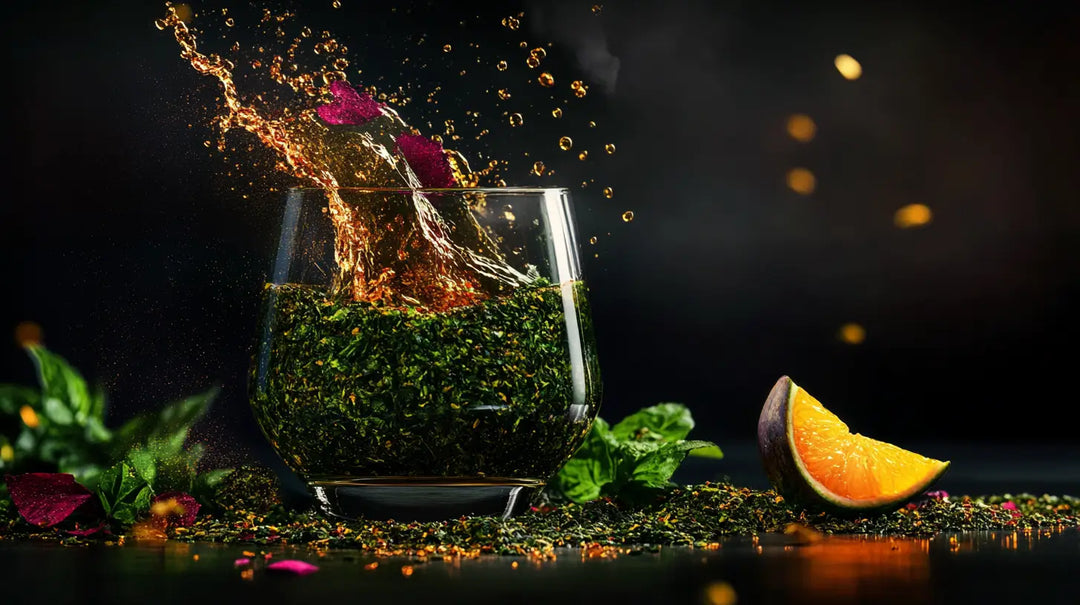The Psychology of Drinking Green Tea: Why It Feels So Relaxing

The Sensory Experience of Green Tea
Green Tea is more than just a beverage, it's a multisensory experience that engages our psychological and physiological responses in unique ways. From the moment you begin preparing the tea to the last sip, multiple psychological mechanisms contribute to its perceived relaxation benefits.
Neurochemical Influences
L-Theanine: The Relaxation Amino Acid
Green tea contains L-theanine, a unique amino acid that directly influences brain chemistry. Unlike other caffeinated beverages, green tea provides a paradoxical state of calm alertness.
Effects of L-Theanine
- Increases alpha brain wave activity
- Promotes relaxation without sedation
- Reduces physiological stress responses
- Enhances cognitive focus
- Helps modulate neurotransmitters like dopamine and serotonin
Caffeine and Calm: A Unique Interaction
While green tea contains caffeine, its interaction with L-theanine creates a distinctly different experience from coffee or energy drinks. The caffeine provides subtle alertness, while L-theanine smooths out potential jitteriness.
Cultural and Psychological Conditioning
Tea Drinking as a Cultural Practice
The psychological benefits of green tea extend beyond its chemical composition. Cultural practices surrounding tea consumption have long emphasized mindfulness, contemplation, and social connection.
Cultural Psychological Elements
- Japanese tea ceremonies as meditation
- Chinese philosophical connections to tea
- Social bonding through shared tea experiences
- Historical associations with tranquility and reflection
Psychological Stress Reduction Mechanisms
Breaking the Stress Cycle
Green tea drinking interrupts typical stress patterns by
- Providing a structured micro-break
- Encouraging deep, rhythmic breathing
- Creating a sensory-rich, present-moment experience
- Offering a sense of personal control
Neuroplasticity and Habit Formation
Regular green tea consumption can potentially reshape neural pathways associated with stress management. The consistent ritual creates positive neurological associations with relaxation and mindfulness.
Potential Long-Term Psychological Benefits
- Improved stress resilience
- Enhanced mindfulness skills
- Better emotional regulation
- Increased awareness of bodily states
Scientific Perspectives
Research suggests that the combination of L-theanine, moderate caffeine, and ritualistic preparation creates a unique psychological state of calm alertness. This is not merely subjective experience but is supported by neurochemical and psychological research.
Personal Variation
It's important to note that individual experiences with green tea vary. Factors like personal history, cultural background, and individual neurochemistry influence the psychological response.
Practical Recommendations
Maximizing Psychological Benefits
- Choose high-quality, loose-leaf green tea
- Create a dedicated tea preparation space
- Practice mindful drinking
- Limit distractions during tea time
- Experiment with different brewing methods
Green tea represents far more than a simple beverage. It is a holistic experience engaging psychology, neurobiology, and cultural practices. By understanding its multifaceted nature, we can transform tea drinking from a mundane activity into a profound moment of personal wellness.









